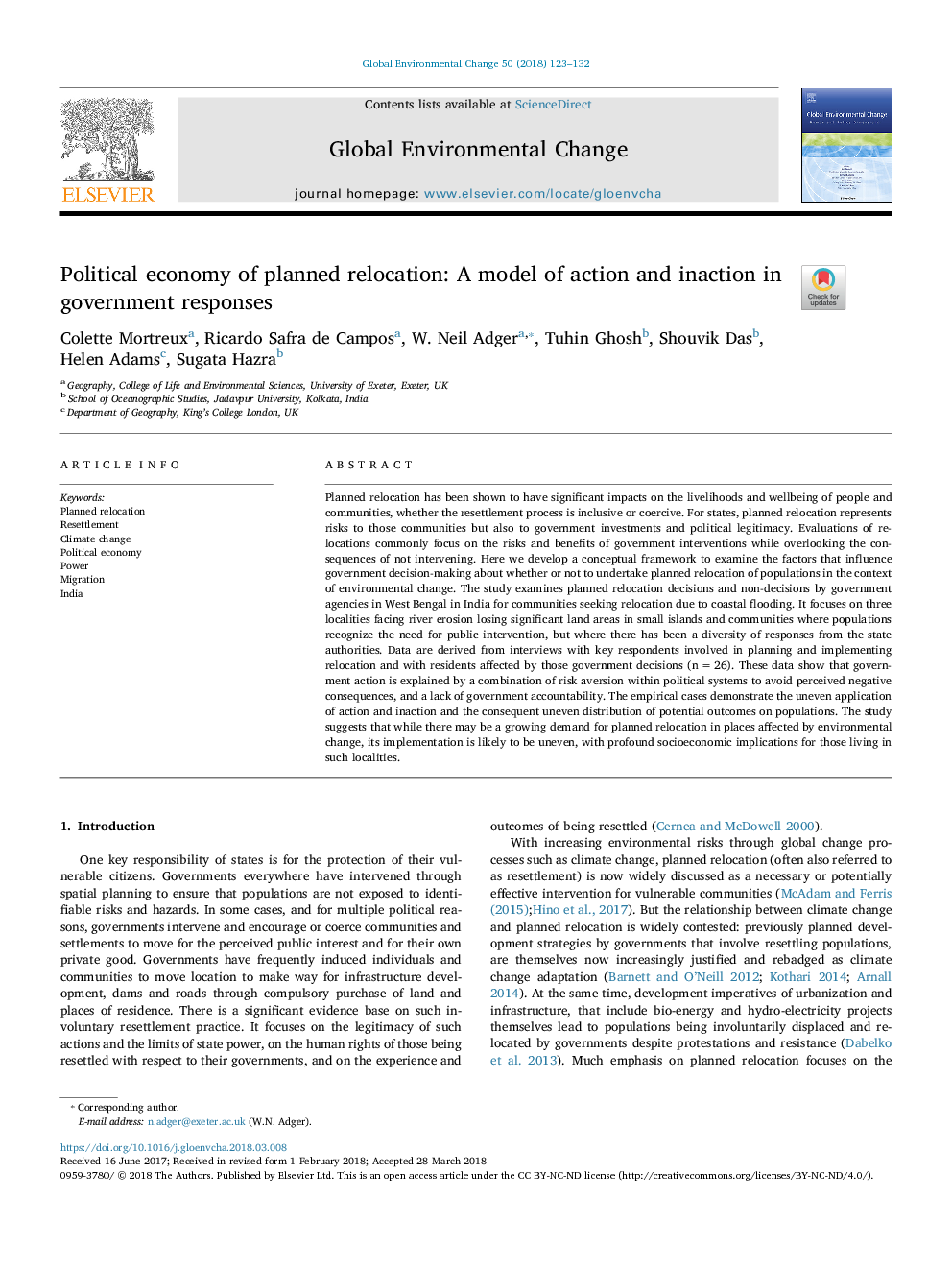ترجمه فارسی عنوان مقاله
اقتصاد سیاسی جابجایی برنامه ریزی شده: یک مدل اقدام و بی عملی در پاسخ دولت
عنوان انگلیسی
Political economy of planned relocation: A model of action and inaction in government responses
| کد مقاله | سال انتشار | تعداد صفحات مقاله انگلیسی |
|---|---|---|
| 86773 | 2018 | 10 صفحه PDF |
منبع

Publisher : Elsevier - Science Direct (الزویر - ساینس دایرکت)
Journal : Global Environmental Change, Volume 50, May 2018, Pages 123-132
ترجمه کلمات کلیدی
برنامه ریزی نقل مکان، اسکان مجدد تغییر آب و هوا، اقتصاد سیاسی، قدرت، مهاجرت، هند،
کلمات کلیدی انگلیسی
Planned relocation; Resettlement; Climate change; Political economy; Power; Migration; India;

